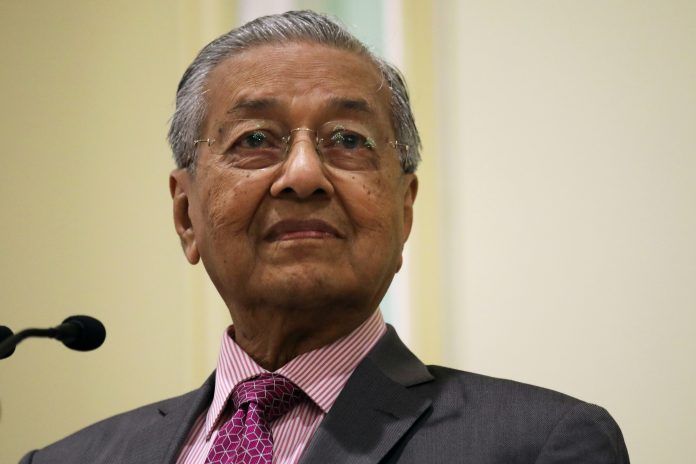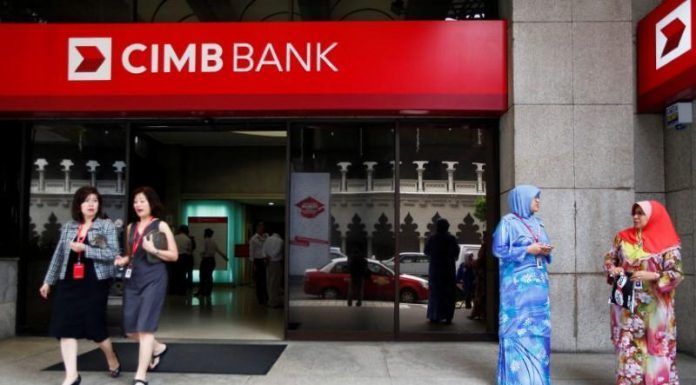
By Liz Lee and A. Ananthalakshmi
KUALA LUMPUR, Oct 30 (Reuters) – Malaysia’s prime minister told reporters the country was being forced to “make it difficult” for Iranians to live normal lives in the country.
Banks in Malaysia are closing the accounts of Iranian individuals and companies, nearly a dozen affected people told Reuters, in a sign that U.S. sanctions are having far-reaching effects on citizens of the Islamic republic.
“Our ties are very good with Tehran, but we face some very strong pressures from certain quarters, which you may guess,” Mahathir Mohamad said after the Reuters story appeared, without naming where the pressure was coming from.
“We are forced to do this because if we don’t, they will close our banks abroad. It’s a kind of bullying by very powerful people.”
The affected Iranians and one embassy official said there were “mass closures” in the Southeast Asian country in recent months.
The banks were being “more Catholic than the Pope”, said university lecturer Behrang Samadi, who is among an estimated 10,000 Iranians living in Malaysia. He learnt in August that his bank, CIMB, would close his 14-year-old account.
“In Western countries, there is no problem opening bank accounts,” he added. “They are only sensitive about money transfers, especially in big amounts.”
Samadi said he withdrew his money soon after the bank warned him of the closure within a month’s time, although he was still able to access his account online on Sunday.
Washington imposed sanctions over Iran‘s nuclear programme late last year, but Malaysia has maintained good diplomatic ties with Tehran. Last week, their leaders discussed http://president.ir/en/111993 ways to further strengthen ties.
It was not clear if the account closures were linked to the tracking of a tanker of Iranian fuel oil off Malaysia this year, a development that annoyed the United States.
The U.S. State Department did not respond to a request for comment.
Many Iranians said they knew of dozens of compatriots who had received notices from CIMB and RHB Bank.
“We regret to inform (you) that we are unable to continue the banking relationship,” CIMB said in identical notices reviewed by Reuters.
The banks did not state a reason, but some individuals said bank officials attributed the move to tighter scrutiny after the sanctions.
CIMB and RHB declined to comment. Malaysia’s central bank directed queries to the Association of Banks in Malaysia, which declined to comment.
Such matters depended on individual banks’ own risk appetite and assessment, the central bank said this month in an email response to one Iranian’s complaint that was viewed by Reuters.
But a July notification on the central bank’s website refers to a statement by the Financial Action Task Force urging “enhanced due diligence” on Iranians by members of the global money-laundering watchdog.
Iran‘s embassy in Kuala Lumpur said it was working to resolve the issue.
“We hope that by goodwill and cooperation of the Malaysian officials, the negotiations will yield a positive result,” it told Reuters in an email last week, adding that Iranian companies had also been affected.
For now, Iranians in the Malaysian capital have been left wondering how to pay school fees or hospital bills. Some are contemplating leaving.
“So no way to resolve this,” network engineer Amir Nazari Mehrabisaid following Mahathir’s comments. He got turned away by more than a dozen banks after his CIMB account was closed. “Better I leave here at the soonest.”
(Reporting by Liz Lee and A. Ananthalakshmi; additional reporting by Rozanna Latiff in Kuala Lumpur and Timothy Gardner in Washington; editing by Krishna N. Das,Clarence Fernandez, Larry King)


